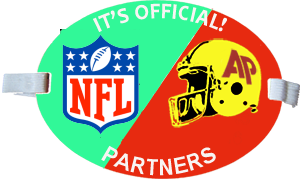Lifetime Revenue Streams
 Rob Haggert, over at A Photo Editor, has a great article up, entitled "Why Would You Quit Working with a Freelancer", that I posted a lengthy comment on, and the thread and comments are well worth a read. That said, what I wrote is a good standalone piece, so I've re-edited it, and am posting the thoughts here as well, since several projects have kept me tied up these past two weeks and have precluded me from having the bandwidth to write much of late.
Rob Haggert, over at A Photo Editor, has a great article up, entitled "Why Would You Quit Working with a Freelancer", that I posted a lengthy comment on, and the thread and comments are well worth a read. That said, what I wrote is a good standalone piece, so I've re-edited it, and am posting the thoughts here as well, since several projects have kept me tied up these past two weeks and have precluded me from having the bandwidth to write much of late.
So, enjoy, and I hope you make it over to Rob's blog to read more.
There is an expectation is that our success rate must be greater than that of a surgeon in order to remain in business. There is no margin for error, even though a life is not on the line, just a blank space on a page in a publication.
I strive to meet - and exceed - client expectations, whether it is an editorial client or a corporate client. Often the "one for thee, one for me" approach caused the "one for me" to be the better image that the client used, even though it was not the assignment. Note - the "one for thee" comes first, then you can experiment.
Doug Menuez's recounting of the Business Week panel comments also is spot on. A photo editor only gets so many "the shoot didn't turn out" excuses before their judgement about what makes a good photographer gets called into question, and they are soon sidelined, or let go.
What makes a good photographer, first, and foremost, from a clients' perspective is one that can produce AN image, on time, and for the agreed upon budget. When that image meets basic quality standards, they might get a call again. When that image is better than average, they float to the top of the call sheet, and when that image is exceptional, they not only are the first to get calls all the time, they get flown around because there is significant value in a guarantee (or as close as you can get to one) of a great image regardless of the circumstances you throw at the photographer.
Case in point - I have one editorial client who is always calling me to make images that are a huge challenge. Small cubicles, mini offices with no decor and white walls, people in basement office space, and so on - you get the idea. Often they are cover images, but sometimes, inside ones. Every so often, I kid her and say "geez, when am I going to get an easy assignment", and her response is usually something akin to "I give you the hard ones because I know I will get good photos...", and while I certainly appreciate the vote of confidence, sometimes I think I might just like to walk in and knock it out, but, in the end, pushing those limits, and creating a silk purse out of a sows' ear is appreciated by this photo editor, and, in the end, keeps me working.
One of the messages I try to convey to colleagues is the lost revenue stick (carrot?) regarding a lost assignment:
1) You spend a great deal of effort making a prospective client aware of your work
2) You convince a prospective client to hire you for an assignment
3) You do a great job, and earn $2k for the shoot
4) Client calls you next month. you earn $1,500k or $2,500k on that job.
5) Over the life of this ONE client, you can earn tens of thousands of dollars, just from one consistently satisfied client.
6) One consistently satisfied client will recommend you to several other people over the course of their career, thus, one client can be the root cause of upwards of $100k in revenue, over your photographic career.
Now, if I told you that any given job that you would do for that client would cause that client to (at first) think twice about hiring you or (after a second screw up) not hire you, and thus, that single $2k assignment wasn't actually a $2k assignment, but rather a $100k lifetime revenue stream, how seriously would you take the assignment? Would you take extra cameras and lighting equipment "just in case"? Would you have a backup laptop? How many safeguards would you put in place to ensure that each and EVERY assignment went off without a hitch?
Please post your comments by clicking the link below. If you've got questions, please pose them in our Photo Business Forum Flickr Group Discussion Threads.

